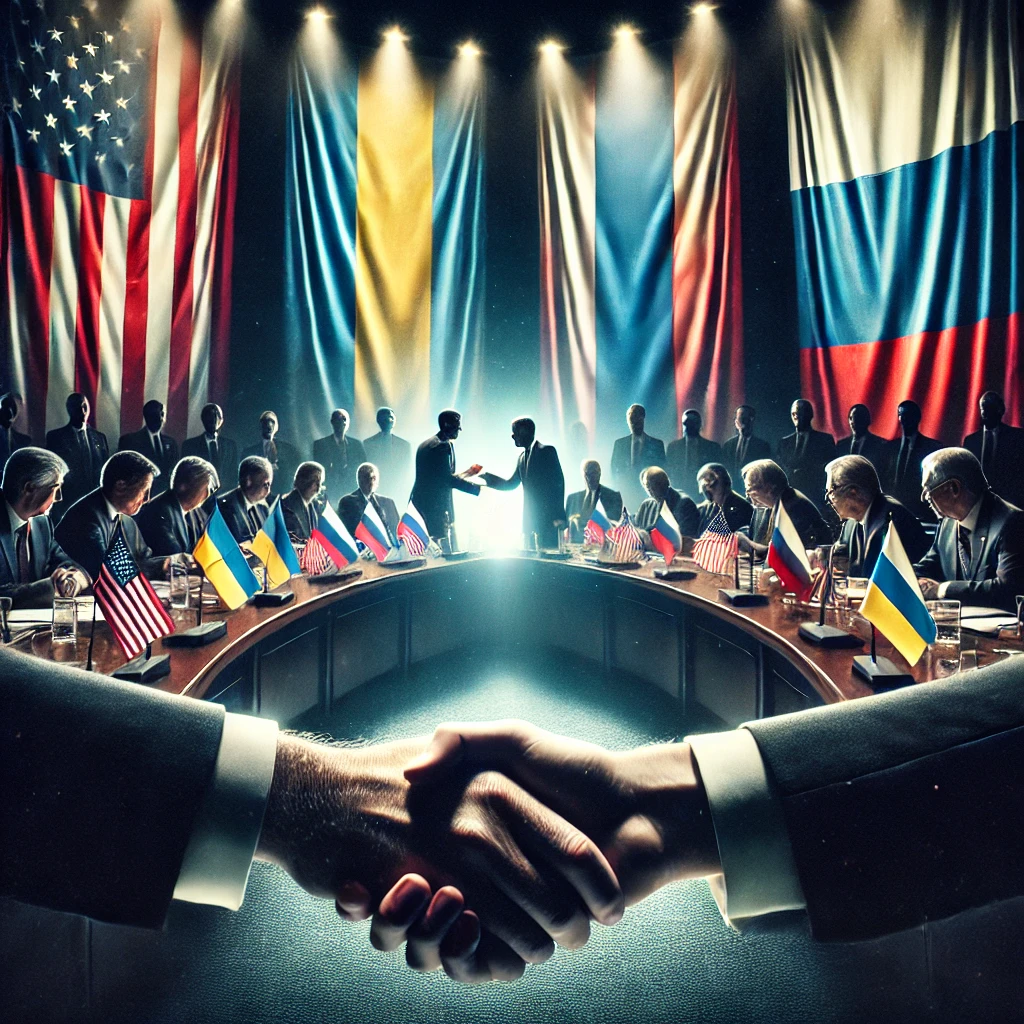Published Date: March 19, 2025 ✍️ Author: Global World Citizen News Team 🌍 Source: GlobalWorldCitizen.com
President Donald Trump described his latest phone call with Ukrainian President Volodymyr Zelensky as “very good,” as both Ukraine and Russia traded accusations over cease-fire violations just a day after the U.S. brokered a partial pause in hostilities.
Trump, who has positioned himself as the key intermediary between Kyiv and Moscow, posted on his Truth Social platform that efforts toward a broader peace agreement were “very much on track.” He promised further details on his one-hour conversation with Zelensky.
Cease-Fire in Question
The diplomatic call followed an announcement by the White House that Trump and Russian President Vladimir Putin had agreed to a 30-day cease-fire on attacks targeting energy infrastructure. However, within hours, both sides reported continued hostilities:
- Ukraine accused Russia of launching 145 drones, four cruise missiles, and two ballistic missiles overnight, striking energy facilities, two hospitals, and other targets.
- Russia, in turn, claimed Ukraine had attacked oil infrastructure in the Krasnodar region, allegedly undermining cease-fire efforts.
Neither Ukraine’s Defense Ministry nor the Kremlin issued official comments clarifying the exact extent of the agreement or who was responsible for violating it.
Trump’s Envoy and Kremlin Narratives Align
U.S. envoy Steve Witkoff, speaking to Bloomberg TV, largely echoed Moscow’s stance, emphasizing that Putin had given “an immediate order” to halt strikes on energy sites shortly after his call with Trump. Witkoff expressed optimism, stating, “I tend to believe that President Putin is operating in good faith.”
This stance aligns closely with the Kremlin’s official summary of the call, raising concerns among Ukraine and its allies about the enforcement and monitoring of the cease-fire agreement.
Ukraine Seeks More Security Guarantees
Zelensky, speaking during a visit to Finland, remained skeptical, pointing out the discrepancy between Putin’s promises and Russia’s continued attacks. He reiterated that any truce must come with firm security guarantees, warning that without them, “Putin will come again with war.”
“We hope that the U.S. will continue to pressure Russia to implement everything that has been agreed upon,” Zelensky stated.
Despite the cease-fire deal, U.S. military aid to Ukraine remains temporarily suspended, a move that some analysts believe is a negotiating tactic by the Trump administration to push Kyiv toward compromise.
Diplomatic Meetings in Riyadh
According to National Security Adviser Mike Waltz, U.S. and Russian officials are set to meet in Riyadh, Saudi Arabia, in the coming days to discuss expanding the cease-fire to a broader peace framework.
It remains unclear whether the U.S. will apply further diplomatic pressure on Russia to enforce the agreement, or if Trump will push Ukraine to accept additional compromises in exchange for continued U.S. support.
The Larger Picture: Energy Warfare and Cease-Fire Limitations
While the partial cease-fire specifically targets energy infrastructure, analysts suggest its impact on the battlefield will be limited. Since the war began, Russia has:
- Launched over 1,300 missile and 1,000 drone strikes on Ukraine’s power grid, periodically plunging cities into darkness.
- Severely damaged 90% of Ukraine’s largest private energy company’s generating capacity.
- Justified these attacks by claiming they target military-related facilities, despite evidence of widespread civilian impact.
Meanwhile, Ukraine has ramped up long-range drone strikes on Russian oil refineries, depots, and pipelines, aiming to cut off Moscow’s energy revenues.
Conflicting Interpretations of the Cease-Fire Scope
A key point of contention is the exact wording of the cease-fire agreement.
- The Kremlin’s version refers only to a pause in attacks on “energy infrastructure”.
- The White House statement describes a broader cease-fire covering “energy and infrastructure”, which could have wider implications.
If not clarified, these differences in interpretation could lead to further disputes and delays in implementation.
What’s Next?
With both sides blaming each other for cease-fire violations, the success of Trump’s diplomatic intervention remains uncertain. Key developments to watch:
- Riyadh Negotiations – Will U.S. and Russian officials make progress on expanding the cease-fire?
- Ukraine’s Response – Will Zelensky push for stronger enforcement measures, or will he remain skeptical?
- Trump’s Next Steps – Will the U.S. take stronger actions to hold Russia accountable?
With the war now in its third year, Trump’s efforts to negotiate peace could shape the future of Ukraine, Russia, and U.S. foreign policy for years to come.


